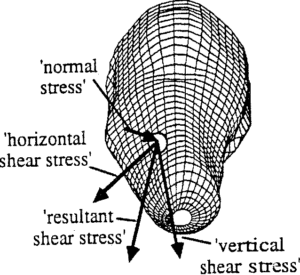
Stress is what you feel when you can’t get out of a negative situation. Reducing amputee stress is a major problem. It becomes paradoxical when you give up trying. Like an employee returning to work while being unable to be tested for Coronavirus because they are not “normal” according to the federal government, nor can they sue if they die because their co-worker gives them an infection. That is stress, being up against an impossible situation.
The good news is that we are not entirely powerless to stress. We have the power to change our mindsets. It may not happen instantaneously, but it is possible. However, before we delve into the different stress-busting techniques, there is one thing you need to do: acknowledge your stress. and the importance of reducing amputee stress. Doing so helps you move from a place of being reactive to a position of control.
Next, think about what, in particular, is causing your stress. Are you most worried about your job and your future, or are you concerned that you or a loved one might get sick? Understanding the cause of your stress helps you examine your reaction to these stressors, which can help you determine the right stress reliever. Do you find yourself feeling angry, frustrated, confused, or sad? Is it affecting your sleep? How does your body feel when you’re stressed? Do you hold your breath, or do your shoulders tense up?
Being aware of how you are affected by stress can help you address how you’re feeling the next time you feel it. So, when you catch yourself feeling the same feelings, or you sense your body tensing up, you can do something about it right away.
Now you know how to identify your stress signals. Below, we’ve compiled five things that can help you shift your mindset.
In times like this, there’s not much under your control. But you can shift your focus on things that are under your control, such as washing your hands with soap and water often, disinfecting your gadgets, eating a balanced diet, and working from home if you’re able to.
Good relationships are essential to a healthy lifestyle. Talking to someone has the power to decrease the burden you’re currently feeling. Furthermore, hearing a familiar and reassuring voice can help put things into perspective.
Being cooped up indoors for a long time can make you feel restless. So, make sure to exercise for at least 30 minutes every day. There are a lot of workouts that you can do indoors.. Download the Fitness for Amputees app (for BK amputees), or search on YouTube.
If structured workouts aren’t your thing, you can still get a dose of endorphins by ensuring that you move every hour. Let’s say you’re binge-watching on Netflix, set a timer so you can stand up and walk around a bit. If you’re taking phone calls, do so while standing up, or you can pace around.
If you feel you need a break, you can do this simple breathing exercise. Sit on a chair with back straight and your feet flat on the floor. Put one hand on your chest and the other on your stomach. Breathe deep through your nose. Make sure the air fills your stomach, not your chest. Hold your breath for a count of three, then exhale through your mouth. Repeat three to five times until you feel refreshed.
Eating right will not only keep your immune system up, but it will also help you manage your stress levels. Remember, what you eat also affects how you feel. Avoid foods that are high in sugar and caffeine.
Go for healthier choices like fruits or vegetables, which help keep your blood sugar stable. Eating fish with high levels of omega-3 fatty acids has also been proven to reduce the symptoms of stress, helping you manage your stress levels better.
Although stress is unavoidable, remember that you are not helpless. Certain things are under your control, and it will be better for your overall health if you focus on these you will be reducing amputee stress.





